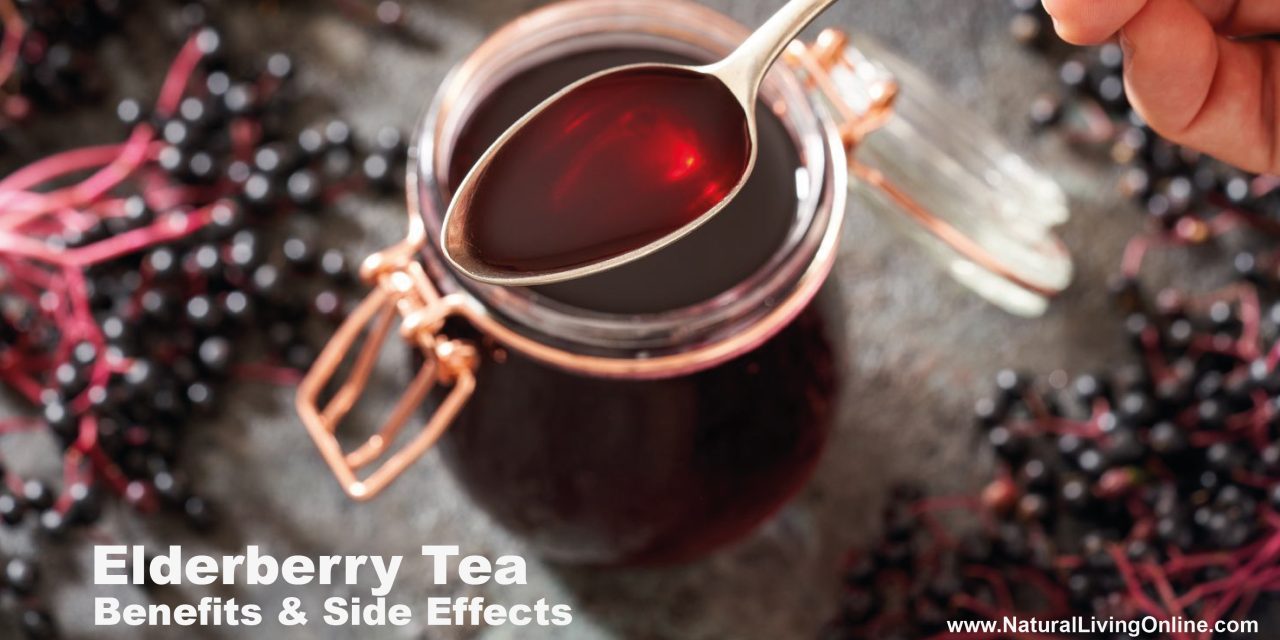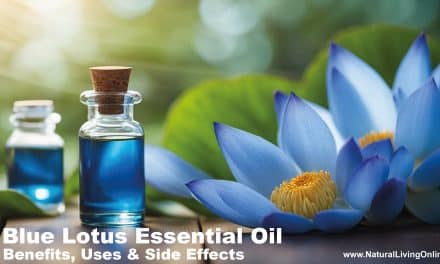Elderberry tea, derived from the elder plant, has been celebrated for its health benefits for centuries. Rich in vitamins and antioxidants, it is believed to boost the immune system and may help reduce inflammation. Drinking elderberry tea can potentially support your body’s defenses against colds and flu.
Despite its benefits, consuming elderberry tea comes with potential side effects. Some individuals may experience nausea, vomiting, or diarrhea, especially if they consume the tea in large amounts or are allergic to elderberries. It’s crucial to be aware of these risks when adding elderberry tea to your diet.
To enjoy elderberry tea safely, many people prepare it by simmering dried elderberries, ensuring the berries are cooked enough to eliminate harmful compounds. This traditional method allows one to savor the tea’s benefits while minimizing potential negative effects.
Key Takeaways
- Elderberry tea can boost the immune system.
- There are potential side effects like nausea and diarrhea.
- Simmering dried elderberries can make the tea safer to drink.
Historical Use and Popularity of Elderberry
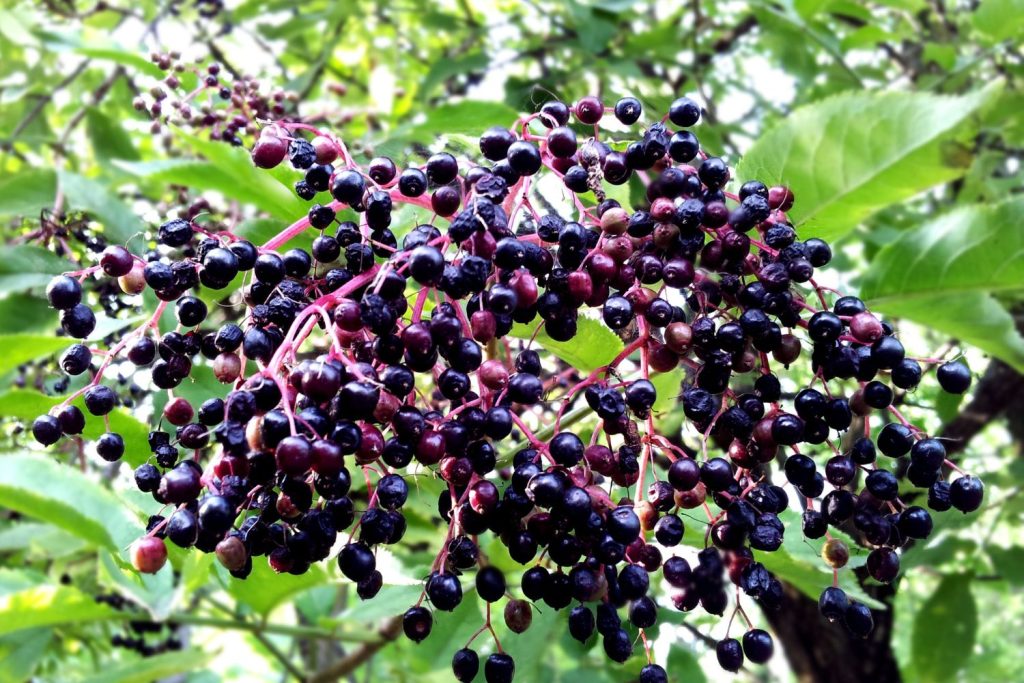
Elderberry has been used for centuries in both ancient medicine and modern supplements due to its potential health benefits.
Ancient Medicine and Folk Remedies
Elderberry, particularly the species Sambucus nigra, has deep roots in European folk medicine. It was often used to treat infections, cold and flu symptoms, and inflammation. Healers prepared it in various forms, including teas and syrups.
In American folk medicine, elderberry also played a significant role. Native American tribes utilized it for medicinal and ceremonial purposes. They believed elderberries had properties that could enhance healing and protect against diseases.
The bark, flowers, and berries of the elder tree were all used in different remedies. They believed elderberry offered protection against illnesses and even used it in rituals to ward off evil spirits.
Elderberry in Modern Supplements
Today, elderberry is widely found in modern supplements. It is available in various forms, including capsules, syrups, gummies, and teas. These products are popular for their potential to support the immune system.
Elderberry supplements often highlight their high antioxidant content. Gummies and syrups are popular choices for those looking for easy-to-consume immune support.
Elderberry tea has also seen a rise in popularity. It’s commonly made by boiling the berries, which releases beneficial compounds believed to help with cold and flu symptoms. Despite these benefits, it’s important to remember to avoid consuming raw elderberries, which can be toxic.
The Active Compounds in Elderberry
Elderberry contains a range of important compounds including antioxidants, vitamins, and minerals. These substances contribute to its potential health benefits and play different roles in the body.
Antioxidants and Polyphenols
Elderberry is rich in antioxidants and polyphenols, which play a crucial role in fighting off free radicals. Among the antioxidants, anthocyanins are the most significant. These compounds give elderberries their deep purple color and have been shown to reduce oxidative stress.
Polyphenols, including flavonoids, are also present in elderberries and contribute to their potential health benefits. Bioflavonoids and pelargonidin are specific types of polyphenols found in elderberries, which can help boost the immune system.
Research has suggested that the presence of these antioxidants in elderberries might aid in reducing inflammation and improving heart health. Studies have linked these compounds to potentially lower risks of chronic diseases.
Vitamins and Minerals
Elderberries are packed with essential vitamins and minerals. Each cup of elderberries contains a significant amount of vitamin C, which is important for immune function and skin health. Elderberries also contain vitamin A, which supports eye health and the immune system, and vitamin E, which acts as an antioxidant.
In terms of minerals, elderberries provide dietary fiber and small amounts of protein and fat. These nutrients are crucial for overall health, helping with digestion and providing essential amino acids.
They also contain other important nutrients such as potassium and iron, which contribute to heart health and red blood cell production. By including elderberry tea in the diet, one may gain a range of these vitamins and minerals that support various bodily functions.
Health Benefits of Elderberry
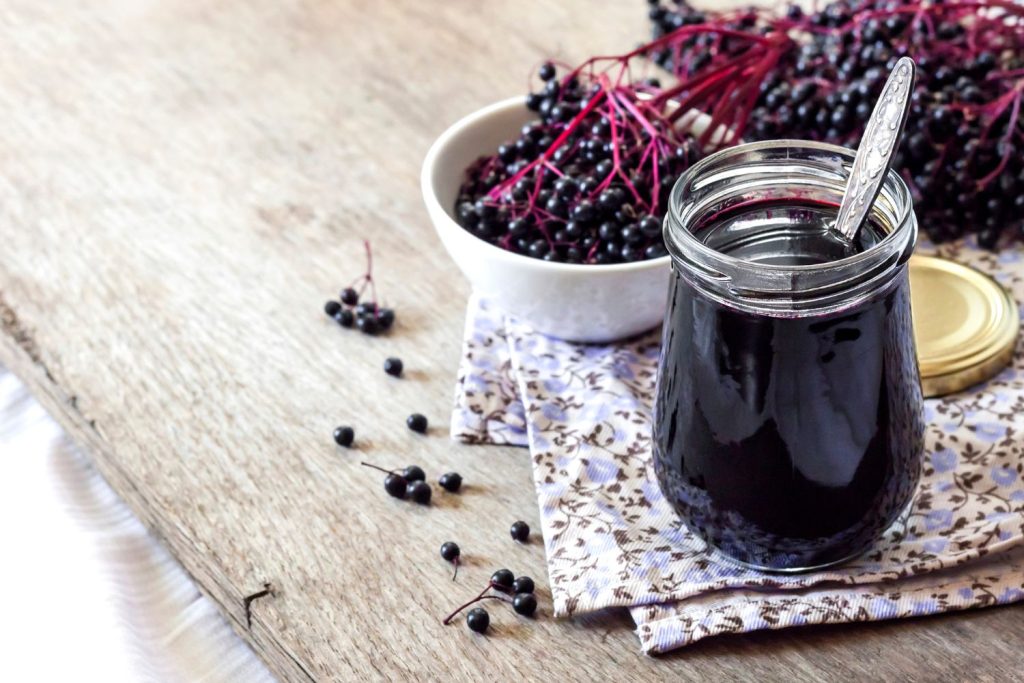
Elderberry has been known for its potential in supporting the immune system, reducing inflammation, managing cholesterol, and providing various heart health benefits.
Immune Support and Cold Prevention
Elderberry is believed to have strong effects on the immune system. It may help in preventing colds and flu. The berries are rich in antioxidants, which fight free radicals and boost immunity. Some studies suggest elderberry can reduce the duration and severity of cold symptoms. It has also been noted that elderberry syrup could be helpful for flu recovery.
Reducing Inflammation and Managing Cholesterol
Elderberry may help in reducing inflammation due to its antioxidant properties. This is important for overall health and wellness. Some research points to elderberry’s potential to reduce cholesterol levels, which is beneficial for heart health. The berries contain compounds that may reduce markers of inflammation in the body.
Potential Benefits for Heart Health
Elderberry has some promising effects on heart health. It may help in lowering cholesterol, uric acid, and blood sugar levels. These factors can contribute to a healthier heart. However, more research is needed to confirm these benefits. Elderberry’s antioxidant properties also play a role in protecting the heart from oxidative stress and related diseases.
Other Miscellaneous Benefits
Aside from immune support and heart health, elderberry may offer other benefits. Some studies suggest it can help with chronic constipation when used in a tea form. Elderberry is also high in vitamins like Vitamin C and dietary fiber. Its nutritional content supports overall health and well-being.
Potential Side Effects and Risks of Elderberry
Consuming elderberry in various forms can pose several risks if not prepared correctly or if consumed by vulnerable populations. Key concerns include the toxicity of raw berries and other plant parts, digestive disturbances, allergic reactions, and special considerations for certain groups.
Toxicity of Raw Berries and Plants
Raw elderberries, along with the bark, leaves, roots, and seeds, contain toxic substances called cyanogenic glycosides. When consumed, these compounds can release cyanide, which is poisonous. Eating raw or unripe berries can lead to symptoms such as nausea, vomiting, and diarrhea.
Cooking or processing elderberries properly can neutralize these toxic substances. Boiling the berries for at least 20 minutes usually removes the toxins. It’s important to avoid consuming any other part of the elderberry plant other than properly prepared ripe berries to reduce the risk of poisoning.
Digestive Disturbances and Allergic Reactions
Some individuals may experience digestive issues when consuming elderberry. These disturbances can include nausea, vomiting, and diarrhea, especially if the elderberries are not cooked thoroughly. Apart from digestive symptoms, there is also a risk of allergic reactions.
Allergic responses can range from mild to severe and might present as skin rashes or difficulty breathing. Individuals with known allergies to similar berries or plants should exercise caution when trying elderberry products for the first time.
Considerations for Specific Populations
Certain groups should exercise additional caution with elderberry consumption. Pregnant and breastfeeding women are advised to avoid elderberry products due to the lack of conclusive safety data. While elderberries are rich in nutrients like vitamin C and dietary fiber, these benefits do not outweigh the potential risks for these populations.
Children and individuals with compromised immune systems should also avoid elderberry unless advised otherwise by a healthcare professional. Elderflowers, while sometimes used for various remedies, should be treated with the same caution as the berries because they can also contain toxic compounds if not prepared correctly.
Elderberry Tea Preparation and Consumption
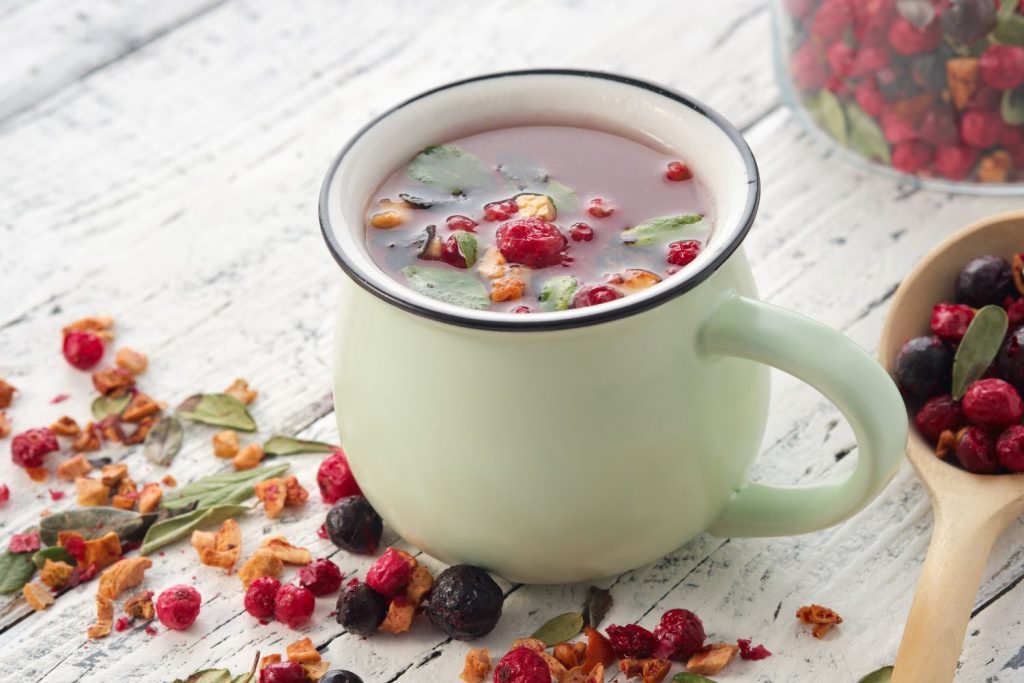
Elderberry tea is easy to prepare and can be a great addition to your daily routine due to its nutritional benefits. It contains fiber, protein, vitamins, and is free of fat and sugar.
Brewing the Perfect Cup
To brew the perfect cup of elderberry tea, start with 1 tablespoon of ripe elderberries. Combine the berries with 1 cup of water in a pot. Bring the mixture to a boil, then reduce the heat and let it simmer for 20 minutes.
Strain the berries through a fine sieve, pressing them with a spoon to extract the juice. Pour the tea into a mug.
For a sweeter taste, you can add a teaspoon of honey. Some people like to include additional ingredients like cinnamon or ginger for extra flavor. Elderberry tea can be enjoyed hot or cold, depending on your preference.
Incorporating into Daily Routine
Incorporating elderberry tea into your daily routine is simple. Start your day with a warm cup to take advantage of its potential health benefits.
Elderberry tea is rich in antioxidants and vitamins. It can be brewed in advance and stored in the refrigerator for up to a week. You can even make a larger batch to save time.
Consider replacing your afternoon coffee with a cup of elderberry tea for a caffeine-free energy boost.
Its unique taste pairs well with a variety of meals and snacks. Many enjoy it as part of their breakfast or as a refreshing drink after a workout.
Frequently Asked Questions
What are the potential benefits of elderberry tea for women’s health?
Elderberry tea is rich in antioxidants and vitamins, which are beneficial for skin health and immune support. It may help alleviate symptoms of menstrual pain and menopause due to its anti-inflammatory properties.
Can elderberry tea affect liver function?
There is limited research on elderberry tea’s effects on liver function. However, excessive consumption of any herbal tea should be approached with caution. It is best to consult with a healthcare provider for personalized advice.
Are there any specific groups of people who should avoid taking elderberry?
People with autoimmune diseases, pregnant or breastfeeding women, and those allergic to the Sambucus genus should avoid elderberry. Consuming raw berries can lead to cyanide poisoning, so proper preparation is crucial.
How might elderberry supplements interact with high blood pressure medications?
Elderberry supplements may interact with diuretics and blood pressure medications, potentially altering their effectiveness. Consult with a healthcare provider before combining elderberry with such medications to avoid any adverse effects.
What are the skin benefits associated with drinking elderberry tea?
Elderberry tea contains Vitamin C and antioxidants, which can promote healthy skin by protecting cells from free radical damage. It may also help in reducing inflammation and maintaining skin elasticity.
Is it safe to consume elderberry tea on a daily basis?
Elderberry tea can be consumed daily, but moderation is key. You should follow recommended doses and consult a healthcare provider to ensure it does not interfere with any existing health conditions or medications.
References:
Elderberry (Sambucus nigra L.) extracts promote anti-inflammatory and cellular antioxidant activity
Elderberry for prevention and treatment of viral respiratory illnesses: a systematic review
This website does not provide medical advice.
All information provided on this website, and on associated social media networks, including but not limited to texts, images, and numbers are for general information purpose only. It is not intended as medical advice and it does not include all possible precautions, side effects, or interactions that may occur. Neither NaturalLivingOnline.com nor its author/founder take responsibility for how you use this information. Statements contained on NaturalLivingOnline.com have not been evaluated by the FDA. You should conduct thorough research via multiple sources and consult your physician or qualified doctor before using any essential oil or herbal remedy. Information on NaturalLivingOnline.com must not be relied upon for medical, legal, financial or other decisions.

